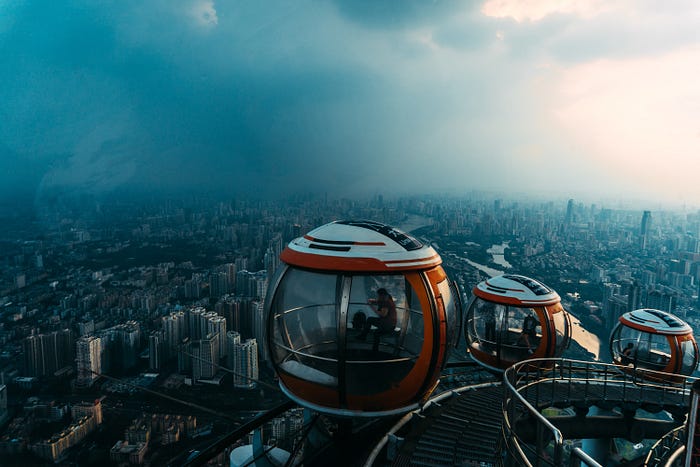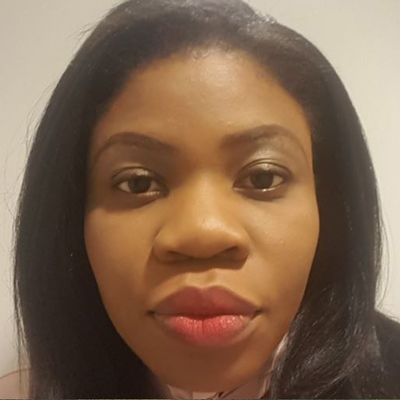Utopia vs Dystopia in Literary Fiction

Since the beginning of the twenty-first century, YA fiction has become a rapidly expanding category of contemporary fiction, with this genre gaining momentum and popularity as readers, both young and old, rush to be engulfed in the fantastical and highly entertaining worlds that YA authors are masterfully weaving. To be precise, most YA and other contemporary fiction has not only taken a fantasy style, but has also welcomed and lingered on the alluring idea of an alternate future, a world far different from our own. This concept is what we now refer to as dystopian and utopian realities.
These two alternates, both on different sides, transport us to either our greatest nightmare or our most joyful fantasy of what our planet might be like in the future. In any case, there is always a revelation at the conclusion, a closure that demonstrates that the real world can never truly vanish; there is always a semblance of it left, no matter which parallel reality our world ends up in.
As much as these two sub-genres seem to almost blend as one due to their similar contexts, there are a few peculiarities that separate one from the other. The word 'Utopia' is literally described as: 'an ideal place or state', 'paradise', 'a system of political or social perfection'. It is an alternate world that embodies our deepest fantasies of what and how a perfect world should be. Books with this concept demonstrate that all evil things in the past, such as poverty, diseases and negative emotions, have been erased, and the world is starting anew with the perfect government system, perfect societal living, with perfect citizens.
This idea of a 'paradise on earth' was first introduced in Thomas More's Utopia (1516), in which he describes an ideal world where all evil have been eliminated and all is right with the world. More works started being published thereafter about the possibility of the existence of such a world, as described in Francis Bacon's New Atlantis (1626), a novel about an island called Bensalem that is discovered by a crew somewhere west of Peru; an island perfect with generous, highly moral and very honest citizens.
This form of writing was--and is still used--to educate the world that "all that glitters isn't gold". It serves as a reminder that industrialization was and is still rapidly taking over the world as we know it, and transforming it to something unrecognizable, almost too perfect but also too flawed all at once. This kind of world, as perfect as they may seem on the outside, will only lead to permanent destruction of the world and everyone in it; in other words, it will cause an implosion.
Dystopia, on the other hand, is literally described as 'a society characterized by human misery, disease and oppression'. It is also known as 'anti-utopian', in that it is exactly the opposite of what a utopian world entails. This sub-genre usually focuses on political and social issues plaguing the world under a nightmarish and desolate atmosphere. It directly challenges 'Utopianism' in that, unlike the utopian's belief in perfection, Dystopia believes that society is way too flawed to come close to perfection, but will instead self-destruct because of its devious, corrupt ways and other irredeemable flaws, hence the desolate world.
Books like George Orwell's Animal Farm and 1984 describe alternate worlds devastated by revolutions and totalitarianism involving very tyrannical and corrupt government leaders. In this sub-genre, we also see groups of survivors either accepting their fate, or mustering enough courage and bravery to plan an uprising to overthrow the government in order to bring a semblance of the real world back.
Utopian and dystopian literary styles are rapidly gaining popularity, with authors being encouraged to publish more of these works, since they show a fanciful future that is eerily similar to what our real world might become one day. Below is a collection of some excellent and accessible books from both categories that provide light on what Dystopianism and Utopiansim are all about. Make sure to read at least one (if not all) of them; they're all terrific readings, no matter how outlandish (or even near to the reality!) they are.
Utopian Literature
Delirium Trilogy, Lauren Oliver
Matched Trilogy, Ally Condie
Brave New World, Aldous Huxley
The Stepford Wives, Ira Levin
News from Nowhere, by William Morris
The Uglies Series, by Scott Westerfeld
Dystopian Literature
Hunger Games Trilogy, Suzanne Collins
1984, George Orwell
Animal farm, George Orwell
The Giver, Lois Lowry
The Handmaid's Tale, Margaret Atwood
The Miracle Inspector, Helen Smith
The Host, Stephenie Meyer
I Am legend, Richard Matheson
These two alternates, both on different sides, transport us to either our greatest nightmare or our most joyful fantasy of what our planet might be like in the future. In any case, there is always a revelation at the conclusion, a closure that demonstrates that the real world can never truly vanish; there is always a semblance of it left, no matter which parallel reality our world ends up in.
As much as these two sub-genres seem to almost blend as one due to their similar contexts, there are a few peculiarities that separate one from the other. The word 'Utopia' is literally described as: 'an ideal place or state', 'paradise', 'a system of political or social perfection'. It is an alternate world that embodies our deepest fantasies of what and how a perfect world should be. Books with this concept demonstrate that all evil things in the past, such as poverty, diseases and negative emotions, have been erased, and the world is starting anew with the perfect government system, perfect societal living, with perfect citizens.
This idea of a 'paradise on earth' was first introduced in Thomas More's Utopia (1516), in which he describes an ideal world where all evil have been eliminated and all is right with the world. More works started being published thereafter about the possibility of the existence of such a world, as described in Francis Bacon's New Atlantis (1626), a novel about an island called Bensalem that is discovered by a crew somewhere west of Peru; an island perfect with generous, highly moral and very honest citizens.
This form of writing was--and is still used--to educate the world that "all that glitters isn't gold". It serves as a reminder that industrialization was and is still rapidly taking over the world as we know it, and transforming it to something unrecognizable, almost too perfect but also too flawed all at once. This kind of world, as perfect as they may seem on the outside, will only lead to permanent destruction of the world and everyone in it; in other words, it will cause an implosion.
Dystopia, on the other hand, is literally described as 'a society characterized by human misery, disease and oppression'. It is also known as 'anti-utopian', in that it is exactly the opposite of what a utopian world entails. This sub-genre usually focuses on political and social issues plaguing the world under a nightmarish and desolate atmosphere. It directly challenges 'Utopianism' in that, unlike the utopian's belief in perfection, Dystopia believes that society is way too flawed to come close to perfection, but will instead self-destruct because of its devious, corrupt ways and other irredeemable flaws, hence the desolate world.
Books like George Orwell's Animal Farm and 1984 describe alternate worlds devastated by revolutions and totalitarianism involving very tyrannical and corrupt government leaders. In this sub-genre, we also see groups of survivors either accepting their fate, or mustering enough courage and bravery to plan an uprising to overthrow the government in order to bring a semblance of the real world back.
Utopian and dystopian literary styles are rapidly gaining popularity, with authors being encouraged to publish more of these works, since they show a fanciful future that is eerily similar to what our real world might become one day. Below is a collection of some excellent and accessible books from both categories that provide light on what Dystopianism and Utopiansim are all about. Make sure to read at least one (if not all) of them; they're all terrific readings, no matter how outlandish (or even near to the reality!) they are.
Utopian Literature
Delirium Trilogy, Lauren Oliver
Matched Trilogy, Ally Condie
Brave New World, Aldous Huxley
The Stepford Wives, Ira Levin
News from Nowhere, by William Morris
The Uglies Series, by Scott Westerfeld
Dystopian Literature
Hunger Games Trilogy, Suzanne Collins
1984, George Orwell
Animal farm, George Orwell
The Giver, Lois Lowry
The Handmaid's Tale, Margaret Atwood
The Miracle Inspector, Helen Smith
The Host, Stephenie Meyer
I Am legend, Richard Matheson

Related Articles
Editor's Picks Articles
Top Ten Articles
Previous Features
Site Map
Content copyright © 2023 by Yvonne Ije. All rights reserved.
This content was written by Yvonne Ije. If you wish to use this content in any manner, you need written permission. Contact Yvonne Ije for details.







